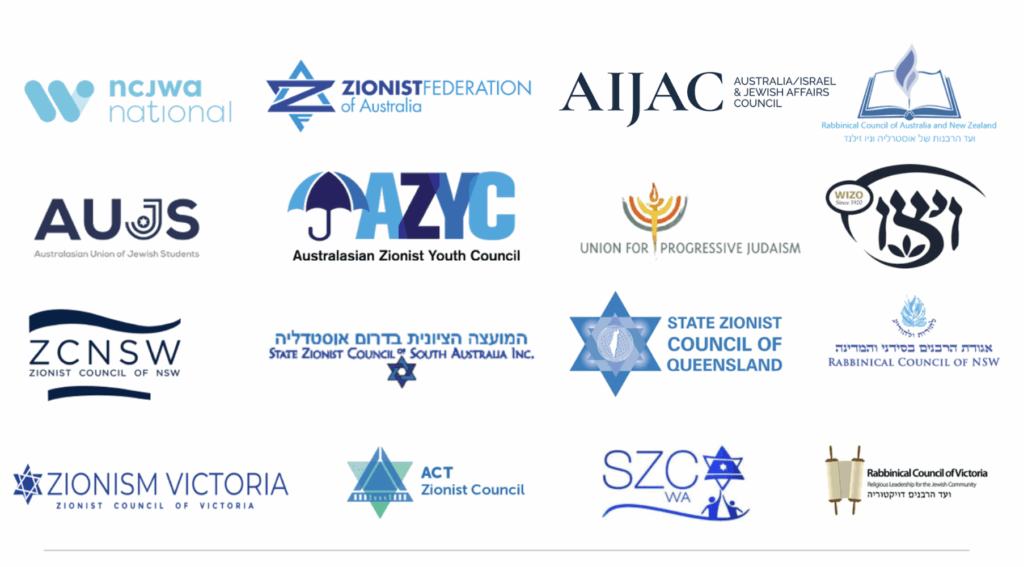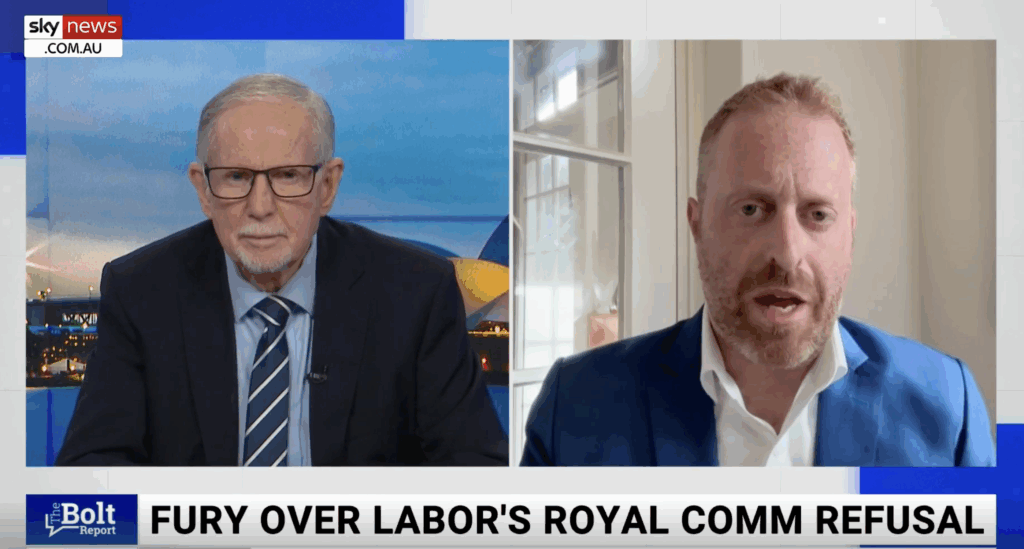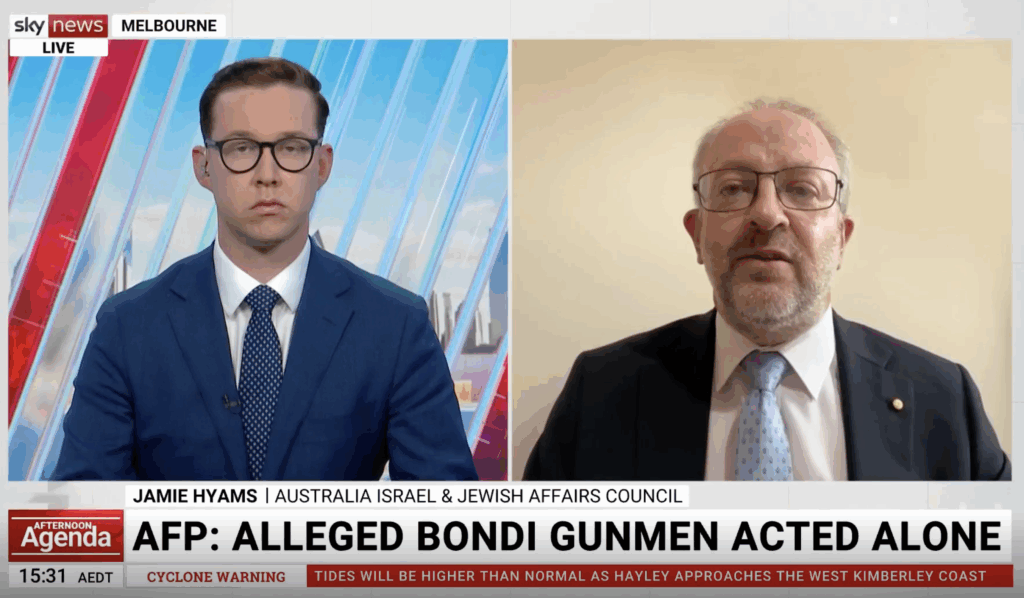UPDATES
Memo to ABC, SBS: Al-Jazeera has a conflict of interest
July 22, 2014 | Ahron Shapiro

The integrity of coverage of the current fighting between Hamas and Israel by Australia’s national broadcaster, ABC, and its sister organisation SBS, has been compromised by their problematic and repeated use of reports by al-Jazeera, an organisation owned by the government of Qatar.
Biased against Israel in its coverage even at the best of times, al-Jazeera must be seen as having an egregious conflict of interest when it comes to the Israel-Hamas conflict, because Qatar is currently the biggest funding source for Hamas, and, together with Turkey, had been actively shilling a ceasefire plan that transparently serves Hamas’ interests.
(For several more AIJAC blogs covering the bias of al-Jazeera, see here, here and here.)
The bias of al-Jazeera during this escalation has been criticised on Capital Hill by Democratic congressman Brad Sherman, who sits on the House Foreign Affairs Committee, the Web site Algemeiner reported.
“Every one of those rockets [fired by Hamas into Israeli cities] is a war crime, almost every one,” Sherman said, noting that Hamas seeks to hit civilian targets. “Of course it’s a war crime committed by Hamas. And of course the owners of this TV network help fund Hamas.”
Meanwhile, the Jerusalem Post has reported that al-Jazeera has pushed Hamas’ agenda in the current conflict more than most other media in the Arab world.
Eyal Zisser, a Middle East expert from the Moshe Dayan Center at Tel Aviv University, told The Jerusalem Post on Sunday that al-Jazeera is fully supporting Hamas, and not the Palestinian people.
Zisser said that the Qatar-owned station has been supporting the Muslim Brotherhood and was against the overthrow of former Egyptian Brotherhood president Mohamed Morsi. Qatar also funds Hamas.
Due to the way many of ABC‘s radio news feeds are only partially archived on the internet, it’s difficult to determine the precise number of times al-Jazeera has been used by the network during this escalation.
In a sampling of three news reports and one popular talk show since Friday, however, al-Jazeera was used all four times – and especially in prime time slots, when most people are tuning in.
At 6:50 p.m. on Friday, ABC Newsradio‘s Drive program a report by al-Jazeera‘s Nicole Johnston, for example, included an interview with an unnamed Hamas official, who said that Israel’s ground incursion would “destroy the two-state solution, because the Palestinians will not, anymore, believe that the Israelis, or trust the Israelis are looking to have a political solution.”
Johnston left this absurd statement unchallenged, ignoring the fact that it is Hamas that has led the rejectionist camp of the Palestinians that has always rejected the concept of a negotiated peace with Israel. In light of this, a fair journalist might have raised the question whether the destruction of the two-state solution is actually the projection of Hamas’ desire in the violence, not Israel’s.
Johnston, of all the journalists currently in Gaza, was also selected to be interviewed live about the situation in Gaza on Radio National‘s Drive program on Monday by host Waleed Aly.
At 9:20 a.m. on Sunday morning, Cameron Green, hosting of Newsradio‘s Weekend Breakfast program aired a lengthy four-minute interview with al-Jazeera’s commentator Marwan Bashara and conducted by Martine Dennis that reads like an infomercial for the Hamas ceasefire plan. While the interview bashed Egypt for its own ceasefire plan, at no point in the clip was it mentioned that Hamas’ plan was being pushed by the network’s owner Qatar – again, at risk of repeating myself, the funders of Hamas!
Marwan Bashara: This is the thing that we haven’t heard before, because of the Egyptian initiative for a ceasefire that was based on consultation with Israel only, or, as some say, was an Israeli initiative with Egyptian wrappings. This time around, there’s a genuine, apparently, Hamas initiative that does take into consideration some very basic demands that says, look, if we’re gonna arrive at a ceasefire after all of the destruction in Gaza, we cannot go back to the status quo and to being one big prison camp. That there has to be some basic changes to the status quo, at least, by lifting the siege and releasing the political prisoners.
Martine Dennis: Indeed. You’re pointing out what I’m looking at as well. Because it seems very much as though these Hamas set of conditions is seeking to change the reality on the ground way beyond an immediate halt in hostilities.
Marwan Bashara: Well, of course. Because Hamas rejects the notion of quiet for quiet after Israeli bombardment of hundreds of communities and the killing of hundreds and thousands of casualties. Hamas now demands that we go back to the 2012 understanding and that the siege is lifted. Because, look, at the end of the day, Israel can’t keep doing the same thing and expecting a different result. That’s actually a sign of craziness or desperation. This war is not winnable. Everyone understands that. You cannot win against 1.5 million Palestinians. You cannot win against communities. It’s not a war to be waged against communities. So, at the end of the day, Gaza’s going to have to live in some sort of a semi-normal situation until a just and final peace is reached. Until then, the Palestinians cannot live as subhumans in one big prison camp. The most impoverished, oldest prison camp in the world today. This is not a sustainable situation. Everyone understands that. And the situation tends to be demystified by Israel somehow as if it’s a war against Hamas per se when we know for a fact Hamas’ popularity has only increased over the last ten days because of the Israeli campaign.
Martine Dennis: What about the issue, the issue of prisoners. In this document that we have in front of us, it says that Israel should complete its obligations under the Shalit deal. Remind us of what that was all about. Of course, that relates to the Israeli soldier Gilad Shalit.
Marwan Bashara: You know, at the end of the day, there are two sets of prisoners in Israeli jails and Israeli prisons. There are Hamas prisoners from past eras and there were Hamas prisoners that were released in 2012. But they were put back in prison after the latest killing of three young Jewish settlers on the West Bank. So what Hamas is saying, look, we never took responsibility for that act of killing the three people. We had nothing to do with it. You had no right to – after a deal that was signed, and you released those prisoners, you have no right to put them back again in prison. So those prisoners need to be released and other prisoners need to be released as well because, you know, if you can arrive at the ceasefire and that paves the way to some sort of a settlement, certainly political prisoners would not remain in jail, and you know, there are thousands of them in Israeli jails.
Finally, on Monday morning, SBS World Radio News‘ Brianna Roberts used snippets of al-Jazeera‘s reports to create a monstrous image of Israel, airing unsubstantiated allegations of war crimes from officials in Hamas-run hospitals.
Brianna Roberts: Doctors called it Bloody Sunday in Gaza, with more than 80 Palestinians reportedly killed in one day. At least 50 of those were from one district alone, in Shejaiya, east of Gaza City. A doctor at the Sahaba clinic in Gaza, Basman Alashi, has told al-Jazeera the situation in Gaza is shocking.
Basman Alashi: They are shelling indiscriminately, just shooting at everything that is moving. A child, a woman, an old man, even an animal, they are shooting at it. This has to end. The world has to see it. The world has to hear what’s going on. It’s a massacre in Gaza, done by the Israeli forces.
Not satisfied with one allegation sourced from al-Jazeera, Roberts then introduced another clip from them.
Brianna Roberts: A Norwegian doctor in Gaza, Mads Gilberts, told al-Jazeera people are growing increasingly desperate.
Mads Gilberts: The Israeli forces do not allow ambulances to access those people who are trapped in Shejaiya. There may be more than a hundred or hundreds. We don’t know the exact number of injured in the area but the access of ambulances is a major problem. A father just came running with his daughter screaming that we need ambulances, we need ambulances, we need ambulances.
Roberts did not interview any Israeli government of military official to allow them to respond directly to the allegations, saying only, in her own words, that while the Arab League has accused Israel of war crimes in Shedjaya, “Israel says its ground operation is necessary to target a network of Hamas tunnels.”
In a sampling of just four examples observed over a four-day period – with the potential for considerably more – ABC and SBS have let Australian listeners down by using in whole or in part reports from al-Jazeera. That organisation’s biased track record on its reporting on Israel, taken together with its owner’s deeply-rooted relationship with Hamas, that should invalidate it as a source for Australia’s news organisations, and particularly publicly funded ones. There are many sources of audio and video that can be sourced in the current conflict. Al-Jazeera, which represents the interests of Hamas’ chief allies in the Arab world, should certainly not be among them.
Ahron Shapiro
Postscript: On July 21, Israeli Foreign Minister Avigdor Lieberman told the Foreign Minister of Rwanda that he would attempt to have al-Jazeera banned from operating in Israel.
Ha’aretz reported Lieberman as saying (subscription required):
“Qatar constitutes the economic spine of the most radical terrorist groups, which are undermining the stability of the world in general and the Middle East in particular,” he said.
“Qatar is a key player in our current conflict with Hamas in Gaza, since among other things, it finances Hamas and gives asylum to Khaled Meshal,” Lieberman added, referring to the head of Hamas’ political wing.
Qatar also funds al-Jazeera, which Lieberman said had become a pillar of Hamas’ propaganda effort. “Al-Jazeera has abandoned even the semblance of a credible media outlet, and it broadcasts – both within Gaza and outside it, to the world – anti-Semitic incitement, lies, provocation and encouragement to terrorists,” he said.
All the major global broadcasters have a presence in Israel, Lieberman noted, and many of them “don’t exactly broadcast Zionist propaganda – even the opposite. But as a democratic country, we’re obligated to allow this. In al-Jazeera‘s case, however, this isn’t a media issue, but an issue relating to the operation of a branch of a terrorist organization that is currently fighting against the State of Israel. The U.S. wouldn’t let an Al-Qaida channel broadcast from New York.”
It’s unclear whether Lieberman’s assessment of al-Jazeera as a propaganda arm for Hamas that would place it beyond the bounds of Israel’s laws of free press would be supported by the Netanyahu government at large or by Israel’s courts if such a ban was instituted and challenged. Moreover, many analysts have viewed Lieberman as a politician prone to demagoguery and grandstanding that rarely materialises into actual policy.
Tags: Gulf states





